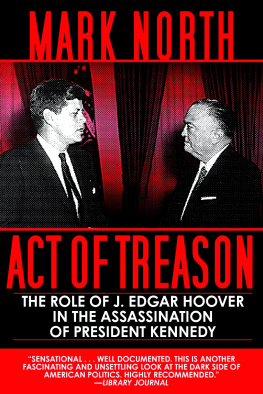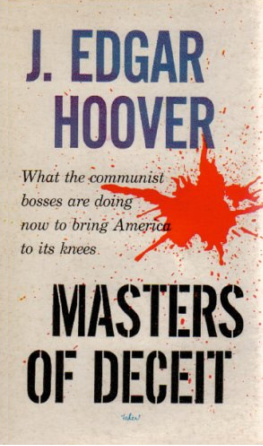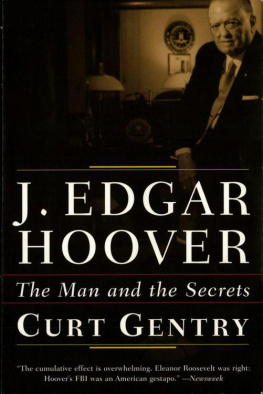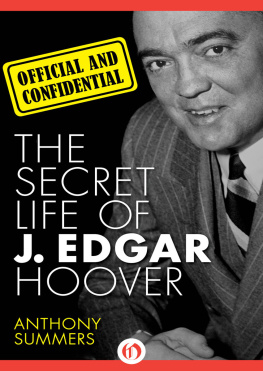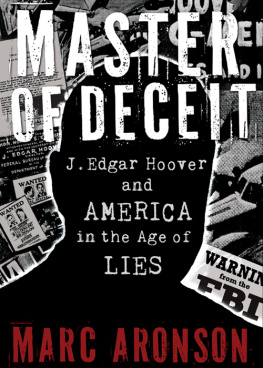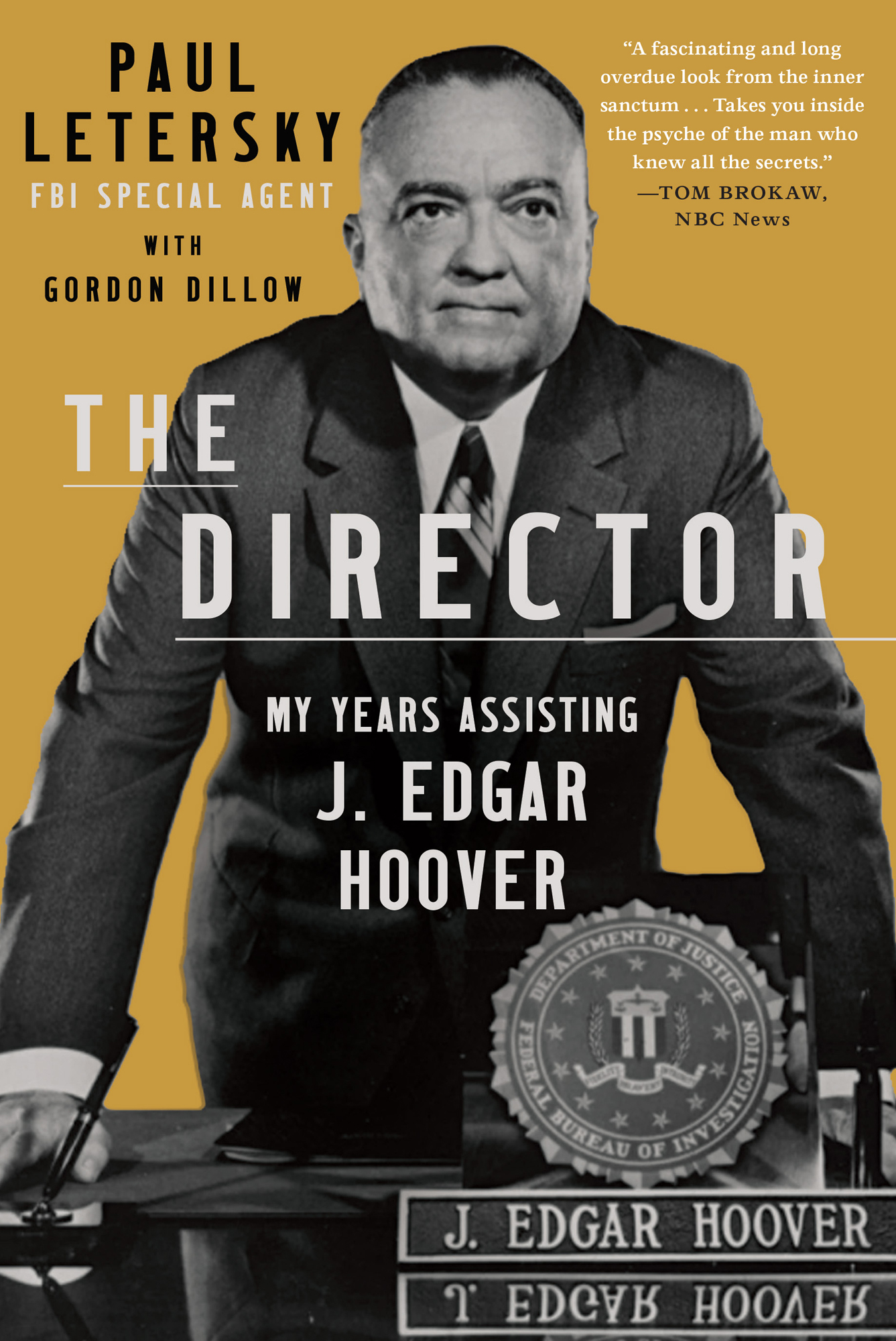Paul Letersky FBI Special agent with Gordon Dillow
A fascinating and long overdue look from the inner sanctum Takes you inside the psyche of the man who knew all the secrets.
Tom Brokaw, NBC News
The Director
My Years Assisting J. Edgar Hoover
MORE PRAISE FOR THE DIRECTOR
Though I worked for the FBI for a quarter century, I found many of the things Letersky talks about in The Director shockingly new, simply because no one dared speak them until now. The book rounds out what we know about J. Edgar Hoover. Yes, he was demanding, odd at times, secretive, and vindictive, but he was far more complex than most people imagine. Only could a person working by his side, who answered his phone and read his mail and dealt with his fits of pique and bursts of enthusiasm, give us this insight.
Joe Navarro, former FBI Special Agent and author of Three Minutes to Doomsday
For a span of decades that defies belief, J. Edgar Hoover wielded more power than any other lawman in American history. Paul Leterskys rich eyewitness stories of a supercop who could be both steel-fisted and strangely soft make this by far the most illuminating portrait of Hoover Ive read.
Don Brown, former prosecutor and bestselling author of Travesty of Justice
Letersky draws back the curtain of history to offer a rare, cinematic glimpse into the psychology and motivation of the Bureaus first Director, J. Edgar Hoover. A must read for anyone interested in the most celebrated of American law enforcement agencies.
Robert K. Wittman, founder of the FBI Art Crime Team and New York Times bestselling author of Priceless and The Devils Diary
Anyone interested in American history will find fascinating what the book reveals about The Director and his agents. As a former member of Special Operations who learned to make maximum use of intel, I found entertaining what Letersky shows about the power of secrets.
Tom Satterly, author of All Secure
Thank you for downloading this Simon & Schuster ebook.
Get a FREE ebook when you join our mailing list. Plus, get updates on new releases, deals, recommended reads, and more from Simon & Schuster. Click below to sign up and see terms and conditions.
CLICK HERE TO SIGN UP
Already a subscriber? Provide your email again so we can register this ebook and send you more of what you like to read. You will continue to receive exclusive offers in your inbox.
For my grandchildren, Charles & Liam, age 12, and Georgia & Nola, age 9.
PROLOGUE In a City of Weak Men
N o one cried at his funeral.
More than twelve hundred invited guests crowded into the National Presbyterian Church in Washington, DC, to officially bid farewell to the man whose body now rested in the flag-draped coffin near the pulpit. President Richard Nixon, sitting in the front row with the First Lady, was trying his best to look appropriately solemn, even though he was privately delighted that the man in the coffin was finally dead. Nixons long-faced, lugubrious-looking vice president, Spiro Agnew, was in the second row with his wife, while nearby sat Supreme Court justices Warren Burger and Byron White, along with House of Representatives minority leaderand future unelected presidentGerald Ford. Former US attorney general John Mitchell, now heading Nixons reelection campaign, was there as well, while other pews were packed with cabinet secretaries, high-level presidential advisers, foreign ambassadors, big-city mayors and police chiefs, dozens of senators and congressmen, even a movie and TV starall there to pay tribute to the strange and remarkable man in the flag-draped coffin.
And from where I sat, in a section of the church reserved for the dead mans exceedingly small group of friends and distant relatives, I couldnt see a damp eye in the house.
To anyone unfamiliar with American history it might have seemed odd that the man in the coffin would rate such a turnout of the famous and powerful, or that his funeral was being broadcast live on three television networksthis at a time when there were only three television networks to choose from. The dead man was, after all, just a bureaucrat, the head of a relatively small government agency, a man whose position in the federal table of organization technically put him on an equal footing with a deputy secretary of agriculture, or the head of the Federal Highway Administration. Hed never sought or held elected office, had never even voted; hed never served heroically in the US military, had never been hailed as a peacemaker or served as an ambassador to foreign lands. But everyone gathered under the soaring arches and stained-glass windows in the nave of the National Presbyterian Church on this May morning in 1972 understood the truth: the man in the flag-draped coffin had transcended the ordinary rules of American political life.
Because the dead man was John Edgar HooverJ. Edgar Hoover, for the past half century the director of the Federal Bureau of Investigation, the legendary FBI. And in terms of longevity and his cumulative impact on the national destiny, hed been one of the most powerful men in American history.
To generations of Americans, J. Edgar Hoover was the FBI. He created the Bureau, transforming it from a small, corrupt bunch of seedy 1920s detectives and political hacks into what most peoplecertainly me includedconsidered to be the most well-trained and efficient and incorruptible law enforcement agency in the world. J. Edgar Hoover was the nations top cop, the number one G-man, sworn foe of John Dillinger and Alvin Creepy Karpis and public enemies everywhere, scourge of Nazi saboteurs and Communist spies and Ku Klux Klan lynch mobs, hero of countless books and movies and radio and TV shows in which the bad guys always lost, and the good guys always won; it was an article of faith among most Americans that J. Edgar Hoovers FBI always, always got its man.
More than that, J. Edgar Hoover was the unceasing defender of the nation against cultural rot and degeneracy, a living symbol of all those things that so many Americans wanted their nation to betough, strong, brave, honest, decent. He was no mere politician or bureaucrat, willing to bend to the shifting political and moral winds that swept through the nation and through Washington, DC. Instead he was, as one American president described him, a pillar of strength in a city of weak men.
Everyone in America knew J. Edgar Hooveror thought they did. People who would have been hard-pressed to identify the sitting vice president or the chief justice of the Supreme Court could instantly recognize his unsmiling bulldog face, his boxers stance, his machine-gun-quick staccato speaking style. Even as he grew older, into his seventies, and the nation slid into the antiestablishment turmoil that was the late 1960s and early 70santi-war demonstrations, race riots, sit-ins, hippies, yippies, pot, LSD, womens liberation, gay rights, black nationalismJ. Edgar Hoover had remained an enormously popular figure. A Gallup poll taken not long before his death revealed that 80 percent of Americans strongly approved of him as FBI director, while a mere 7 percent disapprovednumbers that any public official, then or now, would kill for. If no tears were being shed among the dignitaries at the National Presbyterian Church, more than a few Americans had wept at the news that J. Edgar Hoover was suddenly dead at age seventy-seven.
His public popularity was one reason that Hoover had managed to survive through five decades of vicious Washington politics. As President-elect John F. Kennedy privately explained after deciding to keep Hoover on as FBI director in 1960, You dont fire Godand godlike he was, albeit a God more of the Old Testament than the New.


